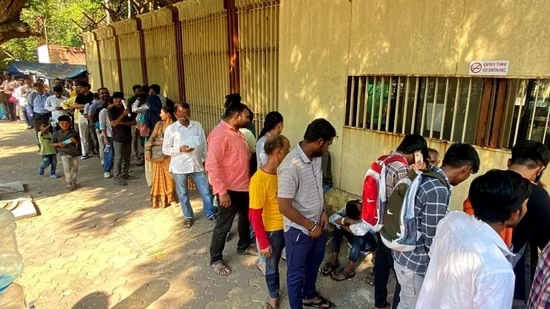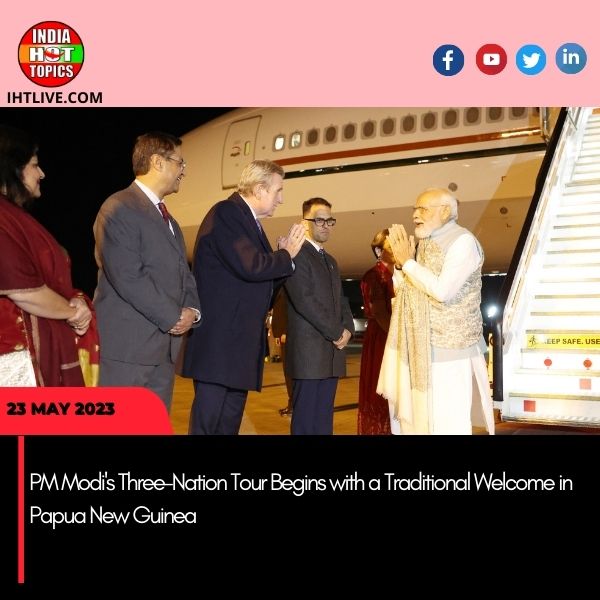India
According to an Israeli official, a mid-level Israeli delegation will visit Cairo to evaluate Hamas’ position.
%20final.jpg)
Hours after Israeli tanks seized control of the Palestinian side of the Rafah border crossing between Egypt and Gaza, the visit to the Egyptian capital is scheduled to occur.
A senior Israeli official stated that Israel rejected the current plan and that a team of mid-ranking Israeli officials would be visiting Cairo in the coming hours to see if Hamas can be convinced to modify their most recent ceasefire offer.
The envoys in this delegation are at the mid-level. “The principals, who are senior officials from the intelligence services Mossad and Shin Bet leading the Israeli side, would be leading the delegation if a credible deal were in the offing,” the person told Reuters.
Hours after Israeli tanks seized control of the Palestinian side of the Rafah border crossing between Egypt and Gaza, the visit to the Egyptian capital is scheduled to occur.
Israeli jets have carried out repeated strikes on eastern Rafah, the southern Gaza city where more than 1 million Palestinians displaced by the seven-month war have been sheltering.
Egyptian officials have ordered Israel to halt the Rafah operation immediately, according to state-affiliated Al Qahera News TV, which also stated that efforts were still being made to minimise the escalation between the two sides.
In a statement, Hamas claimed that the operation was intended to jeopardise talks at a truce.
The Israeli official, who requested anonymity, claimed that Hamas was compelled to release its most recent proposal quickly due to Israel’s evident will to take action against Rafah.
The plan went to “unacceptable extremes,” according to the official, taking the basic structure of a proposal from April 27 that called for an end to hostilities and the release of some of the more than 130 Israeli hostages in exchange for Palestinian inmates held in Israel.
Another official, however, said that Hamas had accepted the phased ceasefire and hostage-release agreement that Israel had put up on April 27 with only small modifications that had no bearing on the proposal’s essential elements.
The new demand would prevent Israel from using its veto power to block the release of some Palestinian inmates, such as Fatah commander Marwan Barghouti, who is serving a life term for his part in organising deadly assaults against Israelis.
“Hamas wants them all to be eligible and for Israel to have no say in the matter,” claimed the official.
Additionally, it would remove limitations on the entry of items known as dual use, which may be applied to both military and civilian applications, into Gaza. “Hamas says these should be allowed in for the rehabilitation of Gaza, but we know that their intention is to manufacture munitions.”
Furthermore, instead of the 33 captives that would have been freed under earlier plans, Hamas was now willing to release only 18 of them in the first phase of a truce, with the remaining hostages to be released in a later phase.
“That means Israel would get only 18 hostages if it sticks to its refusal to call off the offensive,” added the official.
General News Platform – https://ihtlive.com/
Entertainment News Platforms – anyflix.in
Construction Infrastructure and Mining News Platform – https://cimreviews.com/
Podcast Platforms – https://anyfm.in/
India
Nagaland board exams results for Class 10 and Class 12 declared

The Nagaland Board of School Education (NBSE) has announced the results of the 2025 classes 10 and 12 board examinations. Out of 22313 students, 16771 (75.16%) qualified for the high school leaving certificate (HSLC) examination. Lungyihangle Nring of St. Paul Higher Secondary School Dimapur topped the 2025 HSLC exams with a total mark of 592 out of 600.
(98.7%), earning the Nagaland Governor’s gold medal. Students with “needs improvement” in four or less subjects will be allowed to sit for the board’s compartmental examination in June. In the Higher Secondary School Leaving Certificate (HSSLC) examinations, 10426 out of 12404 students cleared the class 12 Arts stream, 2463 out of 3218 passed the Science stream.
The Nagaland Board of Secondary Examination (NBSE) will release the results for the HSLC/10th and HSSLC/12th Board examinations on April 25, 2025. The results will be available on the official website at nbsenl.edu.in. Students who failed to secure the minimum passing marks set by the NBSE will have to appear for the compartmental test, details of which will be.
The 2025 Nagaland Board examination for class 10th or HSLC was held from February 12 to announced after the results February 24, 2025, while the 2025 Board examination for class 12th or HSSLC were held from February 11 to March 7, 2025. The 2025 UP Board Results 2025 date: UPMSP Class 10th, 12th scores releasing on April 25 at upmsp. announced after.
The top three toppers of the Arts stream, Science stream, and Commerce stream will be conferred the Governor’s gold medal award. All three toppers will be conferred to The number of female students is more than male students to have qualified both classes 10 and 12 board exams, according to the NBSE. The 2025 Nagaland.
The Nagaland Board of School Education (NBSE) has officially announced the results for the 2025 High School Leaving Certificate (HSLC) and Higher Secondary School Leaving Certificate (HSSLC) examinations. The results were made available on Friday, April 25, 2025, on the official NBSE websit Board examination for class 10th or HSLC was held from February 12 to.
Examination Details
- HSLC Exams: Conducted from February 12 to 24, 2025.
- HSSLC Exams: Held between February 11 and March 7, 2025.
How to Check Results
Students can access their results by following these steps
- Visit the official NBSE website: Navigate to the ‘Results’ section.
- Select either ‘HSLC 2025’ or ‘HSSLC 2025’.
- Enter the required details: Roll Number, Date of Birth, Exam Year, and Exam Category.
- Click ‘Submit’ to view the provisional marksheet
Important Information
- The online results are provisional.
- Original marksheets and pass certificates will be distributed to schools between May 2 and May 6, 2025.
For further details and updates, students are encouraged to visit the official NBSE website or contact their respective February 24, 2025, while the 2025 Board examination for class 12th or HSSLC was held from February 11 to March 7, 2025.
The Nagaland Board of School Education (NBSE) has declared the results for the Class 10 (HSLC) and Class 12 (HSSLC) board exams today, April 25, 2025. Students can access their scorecards by visiting the official NBSE website at and entering their roll number, date of birth, and exam year. The Times of India+6Business News Today+6The Indian Express+6
This year, 23,267 students appeared for the HSLC exams, and 17,194 students appeared for the HSSLC exams. The exams were conducted between February and March 2025, with the HSLC exams held from February 12 to 24, and the HSSLC exams from February 11 to March 7.
- Group Media Publication
- Construction, Infrastructure and Mining
- General News Platforms – IHTLive.com
- Entertainment News Platforms – https://anyflix.in/
India
Waqf Act: Centre files affidavit in Supreme Court, seeks dismissal of pleas challenging validity

The Union government has filed a preliminary affidavit in the Supreme Court, seeking the dismissal of petitions challenging the constitutional validity of the Waqf (Amendment) Act, 2025. The Centre opposed a stay on any provisions of the Act, stating that it is a settled position in law that constitutional courts would not stay a statutory provision, either directly.
Or indirectly. The government defended the contentious law, stating that “shockingly” after 2013, there were an addition of over 20 lakh hectares in waqf land. The affidavit further states that a “deliberate, purposeful and intentionally misleading narrative” is built, giving the impression that those Waqfs (including ‘Waqf-by-user’) without a document to support their.
Claims will be affected. The Centre clarified that for being protected as ‘Waqf-by-user’ under provision to Section 3(1)(r), no trust, deed, or documentary proof has been insisted upon in the amendment or even before that. A bench headed by Chief Justice Sanjiv Khanna is slated to hear the matter on May 5 on the passing of interim orders improve governance particularly.
In a significant legal development, the Centre has filed an affidavit in the Supreme Court, seeking the dismissal of multiple petitions that challenge the constitutional validity of the Waqf (Amendment) Act, 2023. The affidavit, submitted by the Ministry of Minority Affairs, defends the Act as a lawful and necessary step to reform the management of Waqf properties.
The Waqf (Amendment) Act, 2023, was enacted with the primary aim of modernizing the management of Waqf properties, which are religious endowments under Muslim personal law, and providing greater oversight in their administration. The Act includes several contentious provisions, such as the inclusion of non-Muslim members on Waqf boards and a shift in how.
Legal Arguments in Defence of the Waqf Act
In its affidavit, the Centre argued that the new legislation is within the bounds of the Constitution and has been passed by Parliament under its legislative competence. The government emphasized that any law enacted by Parliament enjoys a presumption of constitutionality, and thus, the petitions challenging the Waqf (Amendment) Act cannot.
be entertained without a proper judicial review. It urged the Supreme Court not to grant any interim relief or stay against the operation of the law, asserting that there is no strong prima facie case to justify such an order Addressing issues of transparency and accountability. Waqf properties can be classified and managed. These provisions have been challenged on grounds.
The Centre further clarified that the inclusion of non-Muslim members in the Waqf boards is meant to ensure transparency, effective management, and a broader representation of of violating religious autonomy and constitutional principles to stakeholders. The government argued that this provision was not meant to interfere with religious matters but to bring administrative efficiency to the management of Waqf properties.
Controversial Provisions of the Waqf Act
One of the key provisions of the Waqf (Amendment) Act that has sparked controversy is the “Waqf by User” concept. This provision allows land used for religious purposes over time to be declared as Waqf, even if no formal documentation or deed exists. Critics argue that this could lead to arbitrary classification of properties and could potentially lead to the confiscation.
Another contentious issue is the provision allowing non-Muslim members on the Waqf boards. This has raised concerns within some sections of the Muslim community, who argue that it could infringe on the autonomy of religious institutions. The Centre, however, defended this provision, stating that it does not confer any administrative or control rights to the non.
- Group Media Publication
- Construction, Infrastructure and Mining
- General News Platforms – IHTLive.com
- Entertainment News Platforms – https://anyflix.in/
India
Gold hits record high of ₹1,01,600 as demand peaks ahead of wedding season

Gold prices in India surged by 1,800 to surpass the critical ₹1 lakh mark for 10 grams in the national capital on Tuesday, driven by a rush of purchases by local jewellers and stockists. The All India Sarafa Association reported that gold of 99.9% purity climbed 1,800 to hit the lifetime peak of ₹1,01,600 per 10 grams. Gold of 98.5% purity also jumped by 2,800 to hit.
A record high of ₹1,02,100 per 10 grams in local markets. Akshaya Tritiya, considered the most auspicious day to buy gold, falls on April 30. The wedding season will continue till May end. Gold has spurted by nearly 29% since December 2024. Silver prices remained flat at ₹98,500 per kg on Tuesday. The new all-time-high attained by gold is primarily influenced by.
Gold prices in India have reached an unprecedented high, with 99.9% pure gold touching ₹1,01,600 per 10 grams, marking a significant milestone in the precious metal’s market history. This surge comes as the wedding season coincides with Akshaya Tritiya, a highly auspicious day for gold purchases, leading to increased demand. The price increase is attributed to a.
Factors Driving the Price Surge
Several key factors have contributed to the record-breaking gold prices:
- Global Economic Uncertainties: Tensions between U.S. President Trump and Federal Reserve Chair Jerome Powell, along with concerns over the U.S.-China trade relationship, have led to a weakened U.S. dollar. This has driven investors towards gold as a safe-haven asset, increasing its price on international markets.
- Domestic Demand: The wedding season, which typically sees a spike in gold purchases, has the precious metal’s market history combination of factors, including global economic uncertainties and local market dynamics. . intensified demand. Additionally, Akshaya Tritiya, falling on April 30, is considered an auspicious day for buying gold, further boosting sales.
- Market Speculation: Increased buying activity by local jewellers and stockists in anticipation of combination of factors, including global economic uncertainties and local market dynamics. Factors influencing gold prices The surge in gold prices has had a mixed impact on consumers and the jewellery market balanced higher demand has contributed to the price hike
Impact on Consumers and the Jewellery Market
The surge in gold prices has had a mixed impact on consumers and the jewellery market:
- Consumer Hesitation: Many consumers are postponing their gold purchases due to the high prices, leading to a decline in footfall at jewellery stores. Some buyers are waiting for prices to stabilize before making significant purchases Factors influencing gold prices The surge in gold prices has had a mixed impact on consumers and the jewellery market balanced.
- Jewellery Adaptations: In response to consumer concerns, jewellers like Tanishq are expanding their 18-carat gold offerings, which are more affordable than 22-carat gold, to cater to budget-conscious buyers. This shift aims to maintain sales volumes during the peak wedding season.
Outlook for the Gold Market
Experts suggest that the gold market may experience continued volatility due to ongoing global economic factors. While the high prices have dampened immediate consumer demand, the cultural significance of gold in Indian weddings may sustain long-term interest. Investors are advised to monitor market trends closely and consider both domestic and international.
For a visual perspective on how consumers are reacting to the soaring gold prices, you can watch the The rising tensions between President Trump and US Fed Chair Jerome Powell gold prices has had a mixed impact on consumers regarding the interest rate cut. The fall in the US dollar will make gold affordable in other currencies, keeping the demand-price dynamics.
- Group Media Publication
- Construction, Infrastructure and Mining
- General News Platforms – IHTLive.com
- Entertainment News Platforms – https://anyflix.in/
-
Tech3 months ago
Best Zebronics Bluetooth speakers you can buy today for an unmatched audio experience
-

 India1 year ago
India1 year agoThe afternoon briefing revealed that 97.26% of the ₹2000 notes were returned, and the Israeli Prime Minister committed to war goals.
-

 India2 years ago
India2 years agoNew Season 8 The Walking Dead trailer flashes forward in time
-

 World10 months ago
World10 months agoMichigan splash pad attack: A couple was shot seven times in total while defending their two small daughters.
-

 India2 years ago
India2 years agoSrikanth Venkatachari is appointed as the new chief financial officer by Reliance Industries.
-

 India2 years ago
India2 years agoPM Modi’s Three-Nation Tour Begins with a Traditional Welcome in Papua New Guinea
-

 India8 years ago
India8 years agoThe 9 worst mistakes you can ever make at work
-

 India Hot Topics2 years ago
India Hot Topics2 years agoCenter ‘busts’ 8 YouTube channels for distributing false information.





